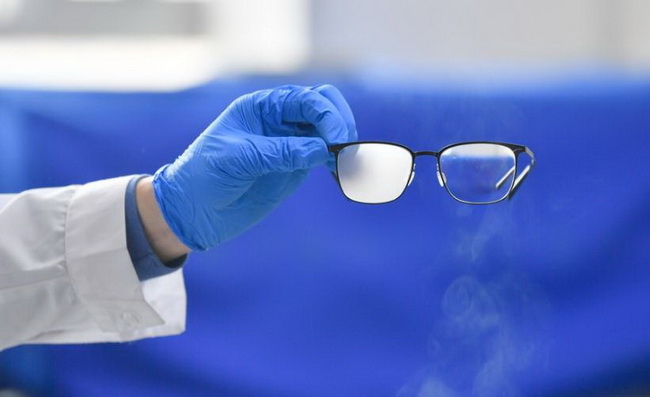China releases import tax policy on backing sci-tech innovation in 2021-2025

A technician shows a lens treated by hydrophilic modified nano-coating technology and an untreated lens encountering vapor at the Research Center for Surface/Interfacial Micro/Nano-technology, Tsinghua University Tianjin Research Institute for Advanced Equipment, in north China's Tianjin, Feb. 24, 2021. (Xinhua/Sun Fanyue)
China's Ministry of Finance, General Administration of Customs and State Taxation Administration on Tuesday jointly issued a circular on import tax policy to support scientific and technological (sci-tech) innovation during the 14th Five-Year Plan period (2021-2025), reported Economic Information Daily Wednesday.
The circular makes it clear that scientific research institutes, technology development institutions, schools, Party schools (schools of administration) and libraries will be exempt from paying import tariffs, import value-added tax and consumption tax when importing scientific research, technology development and teaching supplies that cannot be produced domestically or the performance of domestically-made ones cannot meet the demand.
For books and materials imported for the above-mentioned organizations for scientific research and teaching purposes, the import value-added tax shall be exempted, said the circular.
Compared with the relevant tax incentives in the 13th Five-Year Plan period, Party schools (schools of administration) and libraries are included in the scope for the first time, specifically referring to Party schools (schools of administration) at the county level and above and public libraries at the prefecture-level and above.
The range of scientific research institutes, technology development institutions and schools is also wider than before. For example, compared with previous policies, prefecture-level scientific research institutes are also included this time.
The policy will help China build it into a science and technology power at a faster speed, said industry experts.


